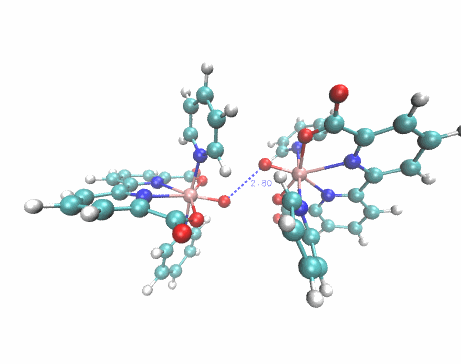Mårten Ahlquist
Professor
Details
Researcher
About me

NEWS
2018-11-26 - Check out our JACS paper
2017-03-31 - Paper Accepted in Angewandte Chemie!
New paper "Capturing the Role of Explicit Solvent in the Dimerization of RuV(bda) Water Oxidation Catalysts" accepted. Describes the interaction of the catalysts with solvent molecules along the O-O bond forming reaction. Available here.
2016-11-16 - New paper "Why Is There a Barrier in the Coupling of Two Radicals in the Water Oxidation Reaction?" out in ACS Catalysis. Available here.

2016-11-01 - Welcome to our new PhD student Xiaoyu Chen
2016-10-15 - We received 36 Msek grant for new catalytic materials! Read more here
2016-10-03 - JACS paper from collaboration with Belén Martín-Matute published here!
2016-08-09 - New paper in Organometallics out. Magazine cover ! Available here
2016-04-08 - New paper in ACS Catalysis out. Available here

2015-09-07 - New group member. We welcome Shaoqi Zhan to our group!
2015-06-29 - HOT PAPER! Paper published online in Angewandte Chemie appointed as hot paper. Available here.

2015-05-22 - Paper accepted in ACS Catalysis on epoxidation of alkenes by ruthenium catalysts with carboxylated ligands. Available on the ACS website
2015-05-08 - Paper accepted in Angewandte Chemie! More info soon.
2015-03-07 - Paper on reversible multiple CH activations at an iridium complex published in Chemical Science.

Research

Our research is focused on the reaction mechanisms and properties of transition metal complexes. Due to their versatile and tunable reactivity such well defined complexes have been successfully used as catalysts for stereospecific synthesis of pharmaceuticals, for polymerization with high specificity, and for synthesis of bulk chemicals. We are currently investigating catalysts that could be used for storage of energy, which is crucial for large scale implementation of sustainable energy sources. When solar energy is used such energy storage is called artificial photosynthesis. The three main reactions of interest is 1) water oxidation to split water into gaseous oxygen, protons and electrons 2) proton reduction to combine the electrons and protons to hydrogen gas 3) carbon dioxide hydrogenation to formic acid, or methanol, as a way of storing the hydrogen in liquid form.

Another class of compounds that we are investigating are alkanes. Today alkanes are mainly burned for energy. An attracive alternative use is as starting material for functional materials. Since alkanes are fully saturated C-H bonds need to be activated. Due to their apolar nature and the strength of the bonds these processes are typically very challenging. Moreover, a catalyst for such reaction needs to be completely selective towards specific C-H bonds in the reactant, and not react with other bonds or further react with the product to degrade it. Our work is focused on quantum chemical modeling of the catalysts to understand their properties and to further improve their reactivity and selectivity.
Education
M.Sc. in Chemistry 2004
Lund University
Ph.D. in Chemistry 2007
DTU Technical University of Denmark
Postdoc 2007-2009
California Institute of Technology
Docent 2013
KTH
Employments
Wallenberg repatriation 2009-2011
KTH
Assistant Professor (Vetenskapsrådet) 2011-2014
KTH
Associate Professor 2014-
KTH
Courses
Current Literature in Theoretical Chemistry and Biology (FBB3480), examiner
Degree Project in Chemistry, Second Cycle (KD200X), examiner
Molecular Modeling (BB2280), course responsible, examiner
Molecular Modeling (FCB3204), examiner
Physical Biochemistry (KD1500), examiner, course responsible
Programming in Python (BB1000), teacher
Project in Chemistry (KD2910), examiner
Project in Chemistry (KD2920), examiner
Project in Chemistry (KD2905), examiner
Python Programming for Chemical Sciences (CK1310), teacher, course responsible
Python for Biotechnology (CB1050), examiner
Research Presentation in Theoretical Chemistry and Biology (FBB3470), examiner
